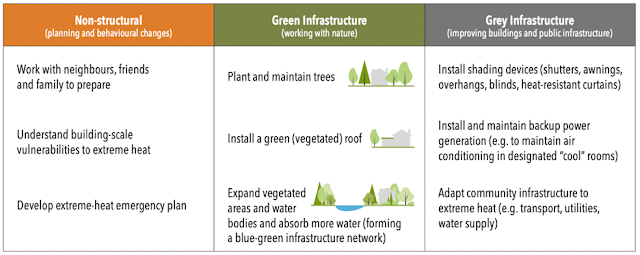16 Canadian cities projected to have the most extreme heat in the future: report
Sarah Anderson|
Apr 23 2022, 11:21 am

Joachim Zens/Shutterstock
As climate change continues to be felt across Canada, a new
report details which areas are set to be the hardest hit by extreme heat,
according to a new report from the Intact Centre on Climate Adaptation in
partnership with the University of Waterloo.
The report from April 2022, “Irreversible Extreme Heat:
Protecting Canadians and Communities from a Lethal Future,” looks at what
Canadians can do right now to reduce the risks of extreme heat in the future,
Part of the report looks at extreme heat projections for
Canadian communities, and they’ve identified several that are the most at-risk
glimpsing into the future between 2051 and 2080.
“Extreme temperatures and heat waves already occur across
Canada and will become more extreme in the future,” reads the report.
There are three main indicators of extreme heat:
- Very hot days over 30°C
- Warmest maximum temperature
- Average heat-wave length
Following these indicators, three primary areas in Canada
were identified as the most at-risk for extreme heat.
Extreme heat in Canada
In BC, low-lying areas will be affected from the coast to
the Rockies. In the Prairies, places bordering the US are at-risk, and north
of Lake Erie through the St. Lawrence River Valley is too.
Here are the 16 communities that are most at-risk:
- Windsor
- Hamilton
- Niagara Falls
- St. Catharines
- Brantford
- Kelowna
- London
- Ottawa
- Toronto
- Belleville
- Lethbridge
- Regina
- Montreal
- Kitchener
- CambridgeWaterloo
These projections are subject to what the report calls
“significant uncertainty,” and the reality is that future conditions will
depend on what actions are taken to slow climate change.
The data used to determine them does not consider other
factors like the urban-heat-island effect or things that contribute to the
real experience of extreme heat, like humidity.
How to reduce the effects of extreme heat
The report highlights 35 different ways to reduce the
effects of extreme heat, including individual actions you can take.
Intact Centre on Climate Adaptation
Preparing in advance – and helping your community and
neighbours do the same – is where you can start. Also, taking advantage of
natural ventilation, reducing indoor “waste” heat from your electronics and
appliances, and using the WeatherCAN app to get notices of extreme heat can
help.


Comments
Post a Comment